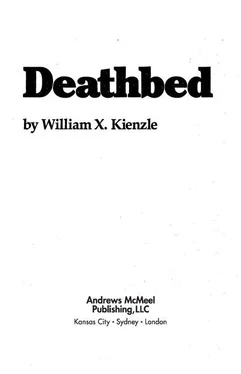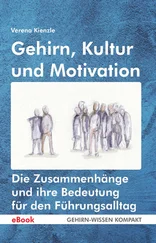Seated with Koesler and Scott were Dr. Lee Kim and Sister Rosamunda. In response to Koesler’s question, Scott and Kim shook their heads.
“Sister Rosamunda . . .” Scott tugged gently at her sleeve. Her aural senses were adequate. But, taking advantage of her advancing years, she chose to hear selectively. “Rosey!” Scott said more loudly.
“Eh?”
“Do you know those two at the next table? The guy with the two-bit toup and the girl sitting in all that mess?”
Rosamunda peered intently. “No ... no, I don’t think so. From her uniform, I’d say the woman is an aide. But I don’t know about the man. Can’t say I’ve ever seen him before. Probably a volunteer. They come and go.”
“It doesn’t matter,” Koesler said. “I just thought I knew the gentleman from somewhere. I’m sorry . . .” He returned his attention to Scott. “You were saying . . .?”
“Lee was telling us about his meeting with Sister Eileen this morning. Disaster,” Scott continued. “Lee feels he’s on the verge of being dismissed from staff. He claims it’s racial . . . thinks Eileen is prejudiced against Asians.”
“Oh, do you think so?” Koesler said. “I really find that hard to believe. I get the impression Sister hasn’t a prejudiced bone in her body.”
“You don’t know her, “ Kim said. “And she is not unique. Many Westerners presume that because someone comes from the East, he automatically has a lesser concern for life. I am only one of many Asian doctors on this staff whose position is threatened.”
Scott looked askance as if he were hearing this indictment for the first time and not believing a word of it.
“And when you come to think of what it would mean to be dismissed from this hospital,” Kim continued. “Just look at those two. . . .”He gestured toward the next table. “They appear to be a good example of people who could find a job nowhere. They are the kind of people your welfare state takes care of. But they are employed here. With that in mind—the sort of people who are permitted to continue working here—think of what would go through the mind of a prospective health-care employer when he heard that you had been dismissed by St. Vincent’s! No other hospital would ever consider you.”
“Kind of put a crimp in your career, eh, Lee?” Scott said.
“The end of my career.”
Koesler hoped he would be ignored for a few moments so that he could reflect on this turn of events.
Undoubtedly, Dr. Kim’s position at St. Vincent’s was threatened. No one would have any reason to mislead anyone about that. The question was why.
Was it, as the doctor claimed, a matter of prejudice? Koesler supposed it possible. He himself had harbored some notions relating to the Asian concept regarding the sanctity of life. Notions that traced back to the event that had plunged America into World War II: the attack on Pearl Harbor and the wanton destruction of all those young servicemen. Notions that were reinforced during the Korean conflict when American soldiers testified to North Korean and Chinese troops attacking in wave after wave until lethal machine guns became too hot to continue firing.
On the other hand, the U.S.A. was the only nation thus far that had actually used a nuclear weapon against humans. And almost singlehandedly devastated Vietnam and Cambodia.
Koesler guessed that something pejorative could be said about militaristic nations in general.
But he found it ludicrous to think of Sister Eileen as prejudiced. In her time at St. Vincent’s she had been responsible for racially integrating the hospital, both patients and staff. That the patient population was now almost completely black was an accident of geography. But that there was a heavy percentage of Orientals and blacks on the staff was in good part the handiwork of Sister Eileen.
On the face of it, Koesler tended to give credence to the information Dr. Scott had offered earlier: that Dr. Kim was not relating generously to the patients and that there was some question of his performing clandestine abortions as well as unnecessary hysterectomies.
There was one other possible consideration. What if Dr. Scott were not on the up and up? After all, why should Scott have taken Koesler under his wing and shared all these secrets with him? Koesler had experienced the oversolicitous helper many times in the past. All too often such a person had an ulterior motive. Covering up for a personal involvement by focusing attention on others. Could this be the case with Scott? Or was Koesler being paranoid?
Once again, he became conscious of the table conversation. The thread had not developed much beyond the point at which he had dropped out of the verbal exchange.
“Well, I don’t believe it for a moment, Lee,” Scòtt said. “I don’t see any problem with your career. But,” he nodded, “there is somebody whose career definitely is coming to an end.”
“Oh? Who?”
“That venerable gentleman just sitting down over there by himself.”
“Haroldson? You must be joking!”
A very solemn-faced John Haroldson was seating himself at an adjacent empty table. His expression would discourage anyone from sharing the table.
“John Haroldson?” Kim said. “Why, he goes back almost to the beginning. Along with our beloved Sister Eileen.”
“Not any more.”
“Why not?”
“Retirement. Haroldson’s reached the mandatory retirement age.”
“How do you know?”
“Small hospital.”
“One of the dinosaurs will live,” Sister Rosamunda broke in, “the other must die.”
“What do you mean by that?” Koesler asked.
“They’re both retirement age.” Rosamunda smiled innocently. “But only one of them will retire.”
Scott nodded. “She’s forcing Haroldson.”
“You mean Haroldson doesn’t want to retire?” asked Koesler.
Scott shook his head. “This place is his life. I wouldn’t be at all surprised to read his obituary shortly after he’s forced out of here. We’ve all seen it happen countless times. It’s frequently a widow or widower, or a guy married to his job; take away what they’re living for and they die.”
“Do you really think so?”
Scott nodded. “Well, now, threatening Kim here, pushing Haroldson out, promising a crackdown in the nursing staff. . . one wonders where Sister’s broom is going to stop.”
“She is cracking down on the nurses?” Kim asked.
Scott nodded and ran his hand again and again through his beard.
“How do you know that?” Koesler asked.
A strange look came over Scott’s face. “Small hospital.” Koesler had never seen him look so . . . was it menacing?
It suddenly occurred to Koesler that, for someone who had seemingly gone out of his way to clue Koesler in under the guise of enlisting the priest’s support of Sister Eileen, Scott was certainly muddying the waters.
What was his motive? Did he have something to gain from staff unrest? Were his comments designed to foment upheaval? Or was he merely playing the wry observer?
At best, concluded Koesler, Dr. Fred Scott was certainly being provocative.
Suddenly, Koesler became conscious of an undercurrent throughout the cafeteria. Sister Eileen had arrived.
That was not unusual and, clearly, it was not her presence that was causing the stir. With Eileen was Pat Lennon. She it was, who, outstandingly attractive and stylishly attired, was turning heads.
Koesler was reminded of his school days in the seminary when Detroit Red Wing Hockey Coach Jack Adams occasionally dined with the priest-faculty. As unusual as it was for the students to see a layman dining with their faculty, the single time Adams brought with him defensive star Red Kelly, the students were awed into near silence. The shock of red hair plus celebrity status did it. The momentary stunned silence had been broken by enthusiastic applause.
Читать дальше












